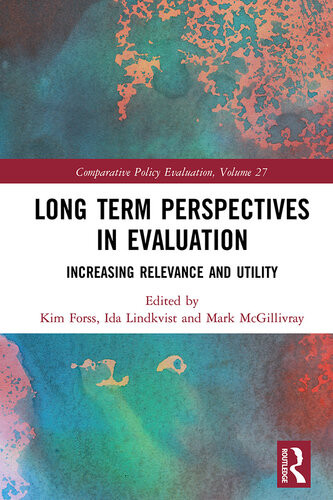

Most ebook files are in PDF format, so you can easily read them using various software such as Foxit Reader or directly on the Google Chrome browser.
Some ebook files are released by publishers in other formats such as .awz, .mobi, .epub, .fb2, etc. You may need to install specific software to read these formats on mobile/PC, such as Calibre.
Please read the tutorial at this link: https://ebookbell.com/faq
We offer FREE conversion to the popular formats you request; however, this may take some time. Therefore, right after payment, please email us, and we will try to provide the service as quickly as possible.
For some exceptional file formats or broken links (if any), please refrain from opening any disputes. Instead, email us first, and we will try to assist within a maximum of 6 hours.
EbookBell Team

5.0
108 reviewsLong Term Perspectives in Evaluation is the first book to advocate the virtues of a long-term perspective for policy evaluation as well as to show how evaluations can take a longer time perspective than they usually do. To get there, it is necessary to understand the decision-making context of evaluations and study the obstacles and the resistance toward long-term perspectives - as knowledge of that will lay the ground for more effective advocacy.
The book is divided into three parts: the first section examines different aspects of methodology and methods. In the next section, authors present case studies of long-term evaluations, examine their own experiences of such evaluations and discuss difficulties, challenges and lessons learned. Cases discussed include: education sector reforms in Sweden, local governance reforms in Denmark, policy interventions in Southern Italy and Brazil, and Paris Declaration Principles of aid effectiveness such as Swedish aid to Tanzania, Vietnam, Laos and Sri Lanka. Finally, the third section sees the authors turn to a set of contextual issues and concluding remarks.
Bringing together a rich collection of insights and a renowned group of experts, Long Term Perspectives in Evaluation: Increasing Relevance and Utility, constitutes a significant landmark in the field.